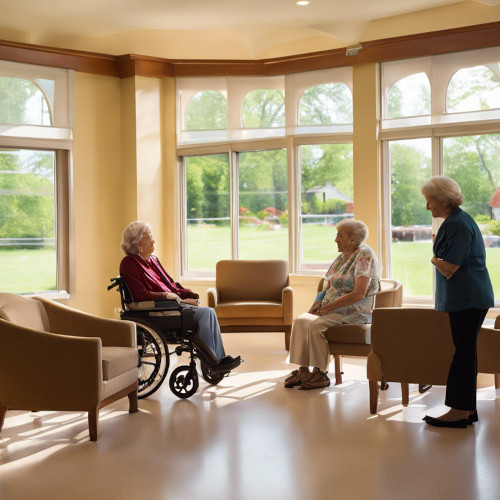
Can Location Affect Nursing Home Quality? How to Compare Facilities Near You
Choosing the right nursing home for a loved one involves carefully considering its location, as proximity to family, access to local...
Posted by

Choosing the right nursing home for a loved one is a significant decision that requires careful consideration. One of the most effective ways to assess a nursing home is by taking a tour and asking the right questions. A nursing home tour allows you to see the facility firsthand, meet the staff, and get a sense of the environment. However, to make the most of your visit, it’s important to know which questions to ask. In this article, we’ll explore essential questions to pose during a nursing home tour, offering tips for families to ensure they make an informed decision. We’ll also discuss how online comparison tools can aid in evaluating nursing homes, making the selection process easier and more thorough.
One of the first questions to ask during a nursing home tour is about the staff-to-resident ratio. This ratio is a key indicator of the level of care your loved one will receive. A lower ratio generally means that staff members have more time to dedicate to each resident, which can lead to better care and attention.
Another critical aspect of nursing home life is the availability of activities and social engagement opportunities. Staying socially active and mentally stimulated is important for the well-being of elderly residents.
Understanding how a nursing home handles medical emergencies is crucial for ensuring the safety of your loved one. This includes knowing about the facility's emergency response procedures, the availability of medical staff, and the proximity to a hospital.
Nutrition is a vital component of elderly care, and the quality of meals provided in a nursing home can greatly impact residents' health and well-being. During your tour, it's important to inquire about the dining options and how the facility meets residents' nutritional needs.
Understanding the financial aspect of nursing home care is crucial before making a decision. Costs can vary widely between facilities, and it's important to know exactly what is included in the fees.
In addition to asking questions during a tour, utilizing online comparison tools can greatly assist in evaluating nursing homes. These tools provide valuable information about the quality of care, staff ratios, and resident satisfaction, helping you make a more informed decision.
Choosing a nursing home is a significant decision that requires careful consideration. By asking the right questions during a tour, you can gain valuable insights into the quality of care, the environment, and the staff. In addition, using online comparison tools can help you make an informed choice, ensuring that your loved one receives the best possible care in a facility that meets their needs. Remember, the goal is to find a nursing home where your loved one can feel safe, comfortable, and well-cared for.

Choosing the right nursing home for a loved one involves carefully considering its location, as proximity to family, access to local...
Posted by

Having "The Talk" about advanced care directives might not be fun, but it's one of the most crucial conversations you can have with your...
Posted by

Nursing home ratings play a crucial role in helping families make informed decisions about where to place their loved ones. These ratings,...
Posted by